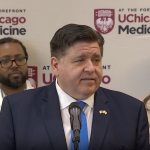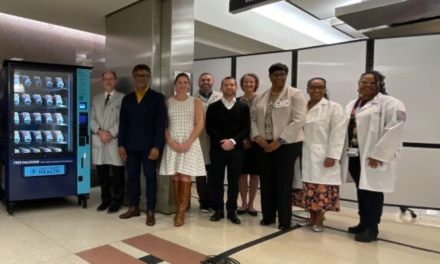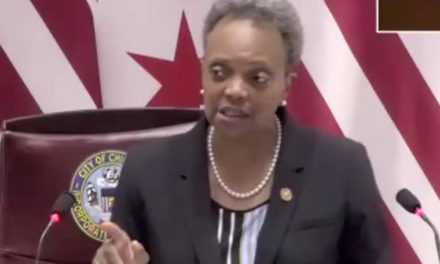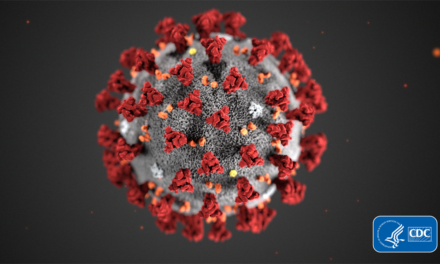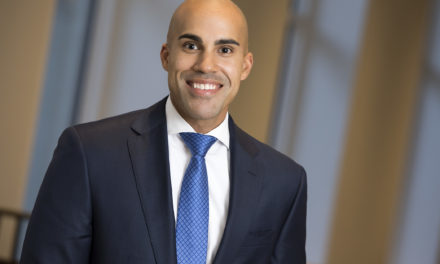
On the record with Jennifer Welch, president and CEO of Planned Parenthood of Illinois
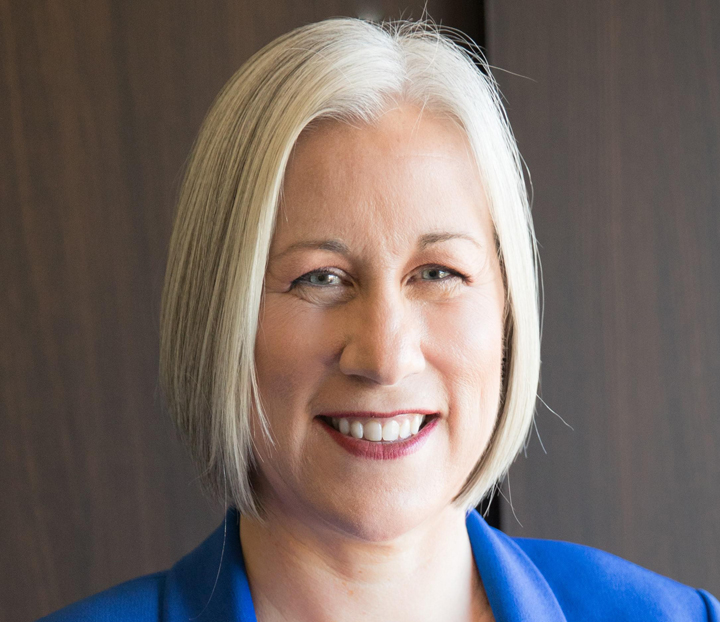
Planned Parenthood of Illinois scored a major victory this summer when Gov. JB Pritzker signed the Reproductive Health Act, establishing abortion as a fundamental right in the state.
But the group is concerned about actions taken in surrounding states to restrict or ban access to abortions, an effort by Republicans to push the conservative-leaning Supreme Court to overturn Roe V. Wade.
The Trump administration is also moving forward on enforcing regulations that prohibit clinics that accept money from a family planning grant program from referring women for abortions.
Planned Parenthood is no longer accepting Title X money, and instead funding the care with private donations.
Planned Parenthood of Illinois President and CEO Jennifer Welch recently spoke with Health News Illinois about the advancement of abortion rights at the state level, what more needs to be done and how much longer they can rely on philanthropy to provide care.
Edited excerpts are below.
HNI: You are a big supporter of the Reproductive Health Act. What impact will that have?
JW: The Reproductive Health Act really was the most important piece of legislation for healthcare probably in decades. It clarifies that a decision for if and when to become a parent is up to the patient. The law is quite comprehensive. It affirms that people get to make the decisions about the use of birth control. It’s about carrying a pregnancy to term or choosing not to. It’s about seeking or refusing an abortion. It’s about clarifying that it is patients and their health that are making these decisions. What the RHA did is that it removed a number of old and dangerous laws that were enjoined. So there were things on the books that directly targeted our patients and our communities and now they are no longer there threatening to come back into action when Roe V. Wade is overturned.
Here’s an example I always point out. I’m a domestic violence survivor. My first husband was an abuser. And one of the laws that was on the book in Illinois was that you had to have spousal consent for abortion. Now when I was a domestic violence victim, I would hate the thought that I would have had my healthcare approved by a man who was abusing me and trying to keep me from leaving him. That’s the kind of old, out-of-date laws that were on the books that the RHA solved for all the residents of Illinois.
HNI: What more can lawmakers do to address the issue?
JW: I think there is one other big piece of abortion rights that needs to be clarified. It needs the same timely update that we got with the RHA, and that is the Parental Notification Act. Really at the soonest possible opportunity, Planned Parenthood is participating in an effort to repeal the Parental Notification Act so that young people have the same access to care like other patients in Illinois. That is the most important legislative priority that remains.
HNI: How do you approach Planned Parenthood’s role as an advocate?
JW: I think that we are in a unique role in the state of Illinois because we are a major healthcare provider. We helped more than 70,000 patients just in the last fiscal year, which ended June 30. So there are great partners out there, and we are really privileged to work with groups like the Illinois Caucus for Adolescent Help and EverThrive and the (American Civil Liberties Union). But we are unique in that we’re a healthcare provider. So our advocacy at Planned Parenthood is informed by the patients that we see every day. And they care for the nonjudgmental, passionate care that we’re providing across the state. So we have a big role and a unique role as advocates for these laws.
HNI: How much does the rhetoric and policies coming out of Washington affect your work at the state level?
JW: Well, it does have a couple of effects. Even though we’re really fortunate to have a supportive General Assembly and governor, we’re still subject to the attacks coming from the federal government. And that includes things like the gag rule. Right now the federal government is preventing medical professionals from giving clear and full information to patients at federally funded Title X healthcare providers. So gag rules are in place here in Illinois, just like every other state. No matter how supportive our local representatives are, the federal government is still harming tens of thousands of patients here in Illinois and millions across the country with that gag rule. So the feds can still harm our patients and our communities. They can and they do put our patients’ health at risk with their regulations.
And I think the other thing to point out is that it is really confusing to our patients. If they read that there’s another abortion ban, they may not notice that it’s just the law that passed in Missouri or in Iowa. So our patients call and ask us, ‘is it still legal? Can I still come for care at your health center?’ So we want to remind patients and medical professionals and other places that refer patients to care that our doors are still open. Abortions are still safe and legal and people can still get the care that they need, no matter what the latest restrictive or regressive rule is from the federal administration.
HNI: You said you will no longer take federal funding from the Title X program. How did you come to that decision?
JW: Well, the new regulations, and the reason we call it a gag rule, is because it makes it illegal for medical professionals who are participating in Title X to tell their patients how they can safely and legally access abortion. And that is a dangerous and unethical rule. It forces healthcare professionals to break their medical ethics. And that is why groups like the American Medical Association are opposing the Title X rule, and they are part of the lawsuits that are pending across the country to overturn this ridiculous regulation. So Planned Parenthood has been clear that we’re not going to force our medical professionals to lie to their patients or to omit information. So that is why we cannot take Title X [funding] under the gag rule restrictions.
And people should be clear on the impact that it is going to have on healthcare in our country. Across the country, Planned Parenthood health centers serve 40 percent of the patients who get their care through Title X. Here in Illinois, we similarly get 40 percent of patients who rely on Title X funding care. It’s more stark for a few counties in central Illinois because there are six counties in the area where Planned Parenthood of Illinois is the only Title X provider, and under that gag rule, all of that care is at risk.
HNI: Gov. Pritzker announced last month the state would refuse Title X funding and cover the cost. How does that affect Planned Parenthood?
JW: We are still providing subsidized care to vulnerable patients who need us the most. Right now, that care is being covered by private philanthropy. We’re not sure how long we can do that, and frankly, private philanthropy should not have to pay for public health. But that is what we’re doing in the meantime.
Now with Gov. Pritzker, I want to be clear that the governor’s decision to reject the state’s Title X funds and his promise to cover that with state funding, that does not include the $3.5 million that Planned Parenthood of Illinois had been granted. We are a direct grantee from the federal government. So the governor’s announcement was finding support for the Illinois Department of Public Health’s funded programs. It did not include Planned Parenthood or our colleagues at Aunt Martha’s because we’re both direct grantees under the Title X program. It’s an important distinction. Planned Parenthood was the single largest grantee in the state and we are not protected.
HNI: How long will you be able to maintain these services through private philanthropy?
JW: We know we have enough funding for the current fiscal year, so I can only talk about the next year of care that we will be providing. We have enough private philanthropy to cover those costs. I want people to know they can still come to us for care, but I want people to know that the federal government has created a dire situation. It’s a dilemma because I want our patients to know that our doors are still open but I cannot downplay the significance of this cut.
Health News Illinois is a nonpartisan, independent news service covering the Illinois healthcare beat. Sign up for a free trial to the newsletter here.



